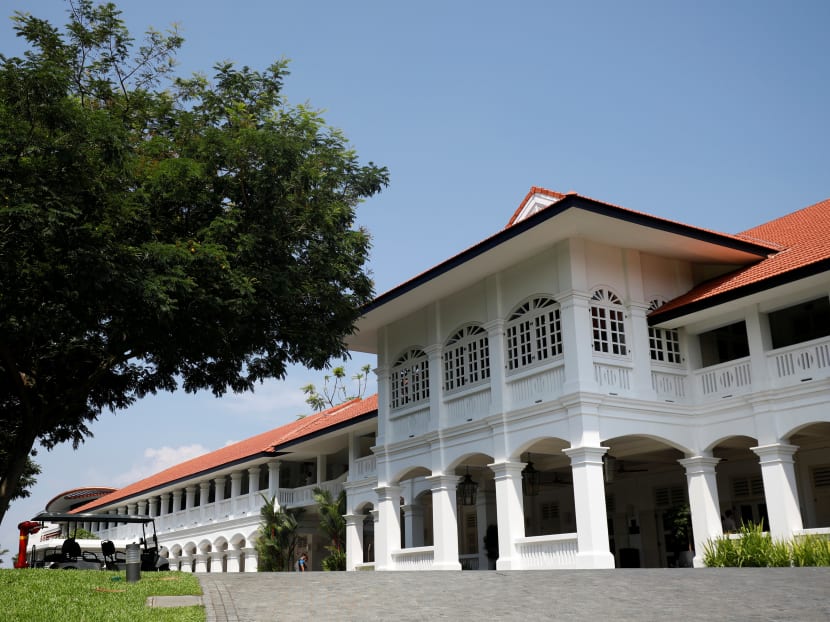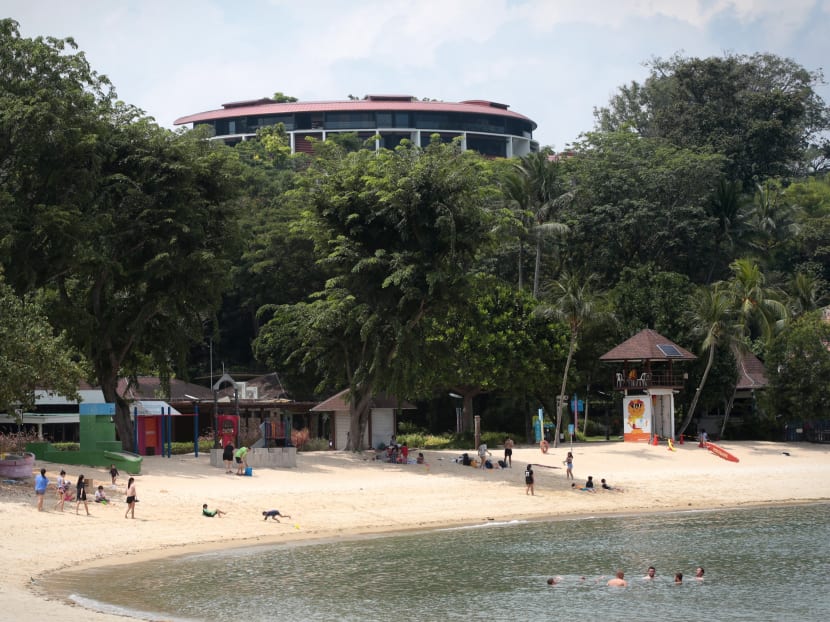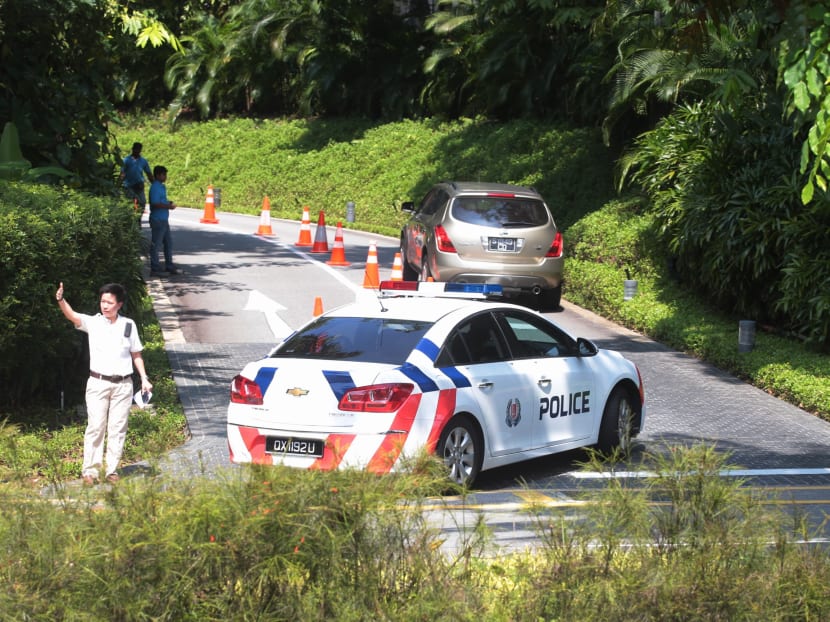Capella Hotel chosen for security and symbolic reasons: Experts
SINGAPORE — The idyllic Capella Hotel in Sentosa could have been picked for the much-vaunted meeting between United States President Donald Trump and North Korea leader Kim Jong-un next week because it strikes a balance between security and diplomatic considerations for both countries, said security experts on Wednesday (June 6).

The Capella Hotel in Sentosa has been picked for the much-vaunted meeting between United States President Donald Trump and North Korea leader Kim Jong-un.
SINGAPORE — The idyllic Capella Hotel in Sentosa could have been picked for the much-vaunted meeting between United States President Donald Trump and North Korea leader Kim Jong-un next week because it strikes a balance between security and diplomatic considerations for both countries, said security experts on Wednesday (June 6).
However, they had mixed views on whether Capella — which houses 112 rooms in restored colonial-style buildings — has more to offer in terms of security as compared with Shangri-La hotel, which was earlier touted as a likely venue for the summit on June 12.
White House press secretary Sarah Huckabee Sanders confirmed on Twitter early Wednesday that the historic meeting will be held at Capella after a flurry of action over the last fortnight, which included Mr Trump calling off the summit before announcing more than a week later that it was back on.
Mr Ong Kok Leong, chief operating officer of security agency Secura Group, said as there is only one road, Sentosa Gateway, connecting the island to the mainland, it would be easier for security personnel to inspect vehicles and individuals. Shangri-La Hotel, on the other hand, is “very porous”, he added, as it can be accessed via various major roads.
With open green spaces in its vicinity, Capella also provides greater ease for aircraft to land in cases of emergency where aerial evacuation may be called for, said Mr Ong. Its location on a hill also gives security forces a vantage point for spotting intruders, he added.
Mr Muhammad Faizal Abdul Rahman from the S Rajaratnam School of International Studies’ (RSIS) Centre of Excellence for National Security said Capella’s “more secluded location” would shield the summit from potential security threats, while keeping members on the mainland safe in the event of security incidents.

However, fellow RSIS research fellow Graham Ong-Webb noted that Capella’s proximity to the sea will mean that more specialised forces must be engaged to bolster security in Singapore’s southern waters leading to and during the summit.
“If you choose a location that is coastal, you are exposing yourself to a third domain,” said Dr Ong-Webb, who researches on geopolitics in Asia-Pacific.
“You will have to take care of one more door. At night, visibility at sea can be extremely poor.”
Still, Singapore is “extremely safe and secure” overall compared to neighbouring countries, he stressed. “If one were to pick a hotel that wouldn’t be a frontrunner (from a security standpoint), it will still work out,” he added.

Officials from both countries were spotted at Capella last week for a meeting in preparation for the summit. The hotel did not respond to TODAY’s queries on its security arrangements for the summit.
That Capella emerged as the choice venue also showed that the decision involved more than security concerns, said Dr Ong-Webb, noting the “historical significance” of the hotel, which includes two conserved buildings that used to house British officers back in the 1880s.
Back in the day, this was where officers from the Royal Artillery and Coastal Defence Command enjoyed meals and recreation time with their family. The hotel, which opened in 2009, was designed by British architecture firm Foster + Partners and is owned by four Singaporean billionaire brothers — Kwee Liong Keng, Kwee Liong Tek, Kwee Liong Seen and Kwee Liong Phing.
Dr Ong-Webb said: “Capella’s history symbolises how Singapore is at the crossroads of the East and West. It speaks of our neutrality. This will be a highly visual meeting, so how it looks matters a lot as well.”
The island hotel could also have been picked for symbolic reasons, as Mr Ong added that holding the summit away from the hustle and bustle of the city is line with hopes for peace. The international community, in particular South Korea which is technically still at war with the North, is hopeful that the Trump-Kim meeting would lead to a nuclear deal.
The Singapore Mint also launched commemorative medallions on Wednesday, featuring a handshake between the two leaders to commemorate the summit as a “momentous step to world peace”.
Since receiving confirmation on June 2 that the summit will be held in Singapore, the authorities, as well as businesses and hotels, have been gearing up for the event.
On Tuesday, the Government gazetted Sentosa, portions of its surrounding waters, Sentosa Gateway and the bus interchange at HarbourFront as a “special event area” for the historic meeting.
A smaller area within Sentosa — encompassing the gateway and buildings of Capella, Resorts World Sentosa and Amara Sanctuary Resort — has been marked as a “special zone”. The “special zone” will be subject to higher levels of security than the “special event area”. For instance, people and vehicles entering these zones will be subject to security checks and screenings. The police have powers to refuse entry or remove individuals from these zones.
Earlier on Sunday, the Government also gazetted a section of the Tanglin-Orchard area, where Shangri-La Hotel — reportedly where Mr Trump will be staying — is situated, as a “special event area”.









